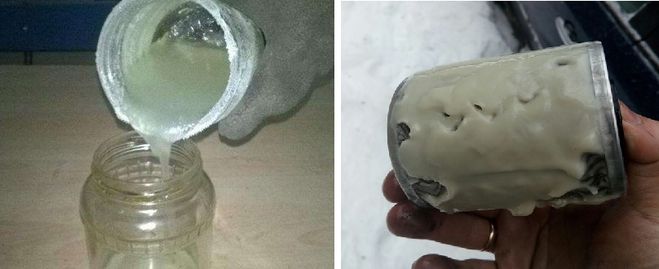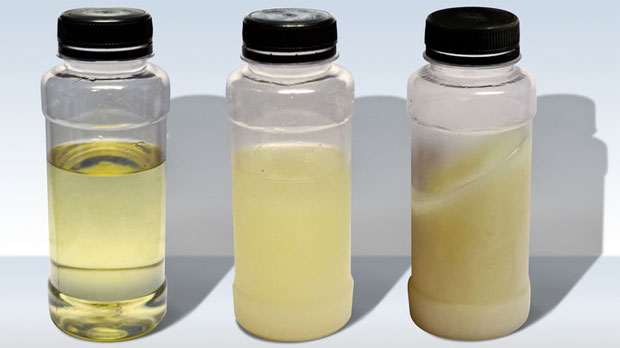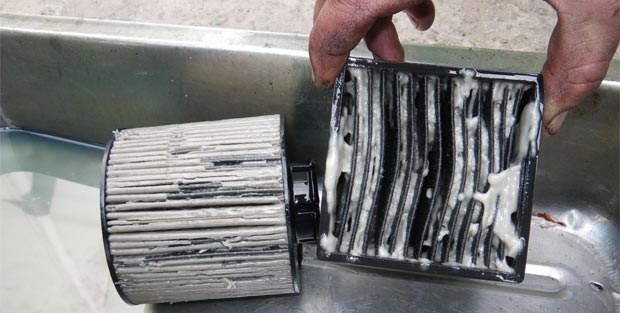
At what temperature does summer diesel freeze?
Content
What is waxing, and why is it bad for a diesel car?
Diesel waxes, always found in diesel fuel, are long-chain hydrocarbons that tend to crystallize at low temperatures. These crystalline platelets block the filters in true "wax" chains. The combined long chain hydrocarbons dramatically increase the viscosity of diesel fuel, which is bad for both the engine and the fuel pump. The presence of water in a sufficiently large amount causes another problem - the formation of ice crystals. This occurs at the freezing point of diesel fuel. The problem is that: a) water does not dissolve in any liquid hydrocarbons; b) these crystals at certain temperatures are already a solid substance, in contrast to paraffin, which is still liquid.
In both cases, diesel fuel will start flowing again only when it is heated above the crystallization temperature.
The problem, as it seemed, can be solved by adding a certain amount (from 7 to 10%) of biodiesel to diesel fuel. However, firstly, biodiesel fuel is expensive, and secondly, this sometimes forms a thick substance that causes foaming of pure diesel fuel that does not contain additives.


Unlike paraffins (when the crystals of the combined molecules break apart with elevated temperature), the mixture of diesel fuel with biodiesel becomes cloudy and is in no hurry to turn back into conventional fuel.
Turbid suspension, which occurs during the waxing process, clogs the filters, which greatly overloads the operation of the fuel pump. As a result, gaps in moving parts are lost and dry friction processes begin. Since the temperatures and pressures are high, the exfoliated metal particles rather quickly turn into metal powder, which first coagulates and then sinters. And the pump is over.
To ensure that this does not happen, it is necessary to use appropriate additives to biodiesel mixtures. In addition, there should be no water in the diesel fuel, which also blocks the filters.


Is there a difference between "winter diesel" and "winter diesel"?
There is. In the first case, diesel fuel is mixed with kerosene, in the second case, antigel is added to ordinary diesel fuel. Most gas stations offer winter diesel instead of winter diesel because it is cheaper. Some are wiser and offer both types to let consumers decide for themselves. For newer vehicles, winter diesel fuel containing appropriate additives is preferred.
And what about biodiesel? Its presence requires a change in fuel processing technology, since gelation points differ from each other. Therefore, biodiesel will react differently with fuel system components. Biodiesel, just like diesel, gels in cold weather, but the exact gel formation temperature will depend on what the biodiesel was made from. Diesel oil will turn into a gel at about the same temperature at which waxing of the oil or fat that was used to make fuel begins.


Freezing point of summer diesel fuel
It is difficult to accurately calculate this range because many variables come into play. However, two key temperatures are known:
- The cloud point is when the paraffin wax is just starting to fall out of the fuel.
- The pour point at which diesel has so much gel in it that it no longer flows. This point is usually slightly below the cloud point of the fuel.
For summer diesel fuel, the first temperature approximately corresponds to the range -4 ... -6ºC, and the second -10 ... -12ºC (assuming constant outside air temperature). More precisely, these temperatures are determined in laboratories, where other physical and mechanical characteristics of the fuel are also taken into account.


Watch this video on YouTube

